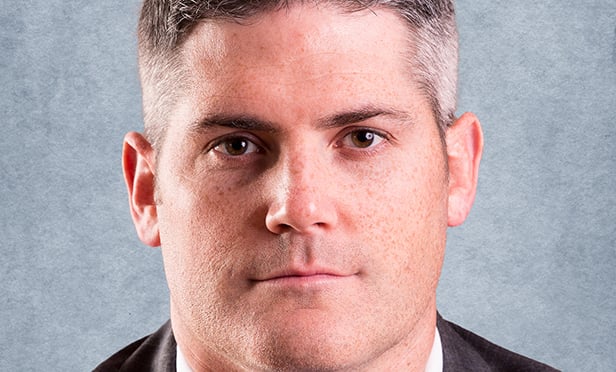TUSTIN, CA—There are a multitude of intangibles that are taken into account when evaluating a property for purchase, Coreland Cos.' SVP of real estate management Cheryl Todd tells GlobeSt.com. In addition to completing thorough physical due-diligence efforts, potential buyers must also focus on operational due diligence in order to uncover areas of lost value and opportunity that could significantly impact the transaction and ROI. We spoke with Todd about some of these intangibles, the common pitfalls of due diligence and how to avoid them.
GlobeSt.com: What are some of the common pitfalls in due diligence?
Todd: Good, thorough due diligence validates value, price and the overall underwriting of an asset. It's the opportunity to uncover the relevant facts, but too often many of the details are uncovered after the transaction has been finalized. The biggest oversight we see is when buyers assume the quality of information in hand is complete and accurate. A buyer should always assemble their own team of professionals to conduct good acquisition analysis, both physical and financial.
GlobeSt.com: Which are the operating areas that most greatly impact revenue and net operating income?
Todd: Prospective owners are buying a stream of income. To best evaluate value, there should be a finite understanding of all leases, including exclusives and restrictions, black-out provisions, rights to relocate, tenant sales, history and trends; lease options; and reimbursements. Never solely rely on an abstract or legal review.
CAM models and unique CAM pools are often misunderstood. It takes the expertise of having worked with a wide range of tenants on varied properties to identify areas of opportunity. Developing thorough CAM models can significantly improve the reimbursement of expenses.
GlobeSt.com: What are other areas of opportunity for buyers?
Todd: Effective tenant interviews are a priority as an important way to evaluate financial stability and operational challenges. If there is a problem tenant, buyers need to know about it up front so cash flow can be discounted accordingly.
Government relations is also a key element of the research, and it's most effective when there are established relationships with the City. These relationships can help uncover quality information, such as what the City will and will not allow in the short- or long-term future of the property. You are looking for any insight that would benefit or adversely affect the property, or surrounding properties, in the future.
GlobeSt.com: Is it time well spent for a buyer to compile its own operating budget?
Todd: Too often, buyers rely on the broker package for the operating budget and other financials. This is not an effective means of projecting the future. A buyer should decide up front how they intend to run the property. Are you evaluating a property run in “C” condition, but your plan is to operate it like an “A” property? Identifying this strategy will allow the development of a more accurate budget, as well as aid in the overall financial evaluation.
GlobeSt.com: Which other resources are important to enlist during the due-diligence process?
Todd: Always refer to the experts as needed. Commercial brokers are a great resource to provide a fair evaluation of the market and competition, and a contractor's perspective will ensure the building complies with codes. Ultimately, conducting analysis from a professional-management perspective will take the current operations of a property and translate it into a SWOT analysis (strengths, weaknesses, opportunities, threats) for the future.
TUSTIN, CA—There are a multitude of intangibles that are taken into account when evaluating a property for purchase, Coreland Cos.' SVP of real estate management Cheryl Todd tells GlobeSt.com. In addition to completing thorough physical due-diligence efforts, potential buyers must also focus on operational due diligence in order to uncover areas of lost value and opportunity that could significantly impact the transaction and ROI. We spoke with Todd about some of these intangibles, the common pitfalls of due diligence and how to avoid them.
GlobeSt.com: What are some of the common pitfalls in due diligence?
Todd: Good, thorough due diligence validates value, price and the overall underwriting of an asset. It's the opportunity to uncover the relevant facts, but too often many of the details are uncovered after the transaction has been finalized. The biggest oversight we see is when buyers assume the quality of information in hand is complete and accurate. A buyer should always assemble their own team of professionals to conduct good acquisition analysis, both physical and financial.
GlobeSt.com: Which are the operating areas that most greatly impact revenue and net operating income?
Todd: Prospective owners are buying a stream of income. To best evaluate value, there should be a finite understanding of all leases, including exclusives and restrictions, black-out provisions, rights to relocate, tenant sales, history and trends; lease options; and reimbursements. Never solely rely on an abstract or legal review.
CAM models and unique CAM pools are often misunderstood. It takes the expertise of having worked with a wide range of tenants on varied properties to identify areas of opportunity. Developing thorough CAM models can significantly improve the reimbursement of expenses.
GlobeSt.com: What are other areas of opportunity for buyers?
Todd: Effective tenant interviews are a priority as an important way to evaluate financial stability and operational challenges. If there is a problem tenant, buyers need to know about it up front so cash flow can be discounted accordingly.
Government relations is also a key element of the research, and it's most effective when there are established relationships with the City. These relationships can help uncover quality information, such as what the City will and will not allow in the short- or long-term future of the property. You are looking for any insight that would benefit or adversely affect the property, or surrounding properties, in the future.
GlobeSt.com: Is it time well spent for a buyer to compile its own operating budget?
Todd: Too often, buyers rely on the broker package for the operating budget and other financials. This is not an effective means of projecting the future. A buyer should decide up front how they intend to run the property. Are you evaluating a property run in “C” condition, but your plan is to operate it like an “A” property? Identifying this strategy will allow the development of a more accurate budget, as well as aid in the overall financial evaluation.
GlobeSt.com: Which other resources are important to enlist during the due-diligence process?
Todd: Always refer to the experts as needed. Commercial brokers are a great resource to provide a fair evaluation of the market and competition, and a contractor's perspective will ensure the building complies with codes. Ultimately, conducting analysis from a professional-management perspective will take the current operations of a property and translate it into a SWOT analysis (strengths, weaknesses, opportunities, threats) for the future.
© 2025 ALM Global, LLC, All Rights Reserved. Request academic re-use from www.copyright.com. All other uses, submit a request to [email protected]. For more information visit Asset & Logo Licensing.









